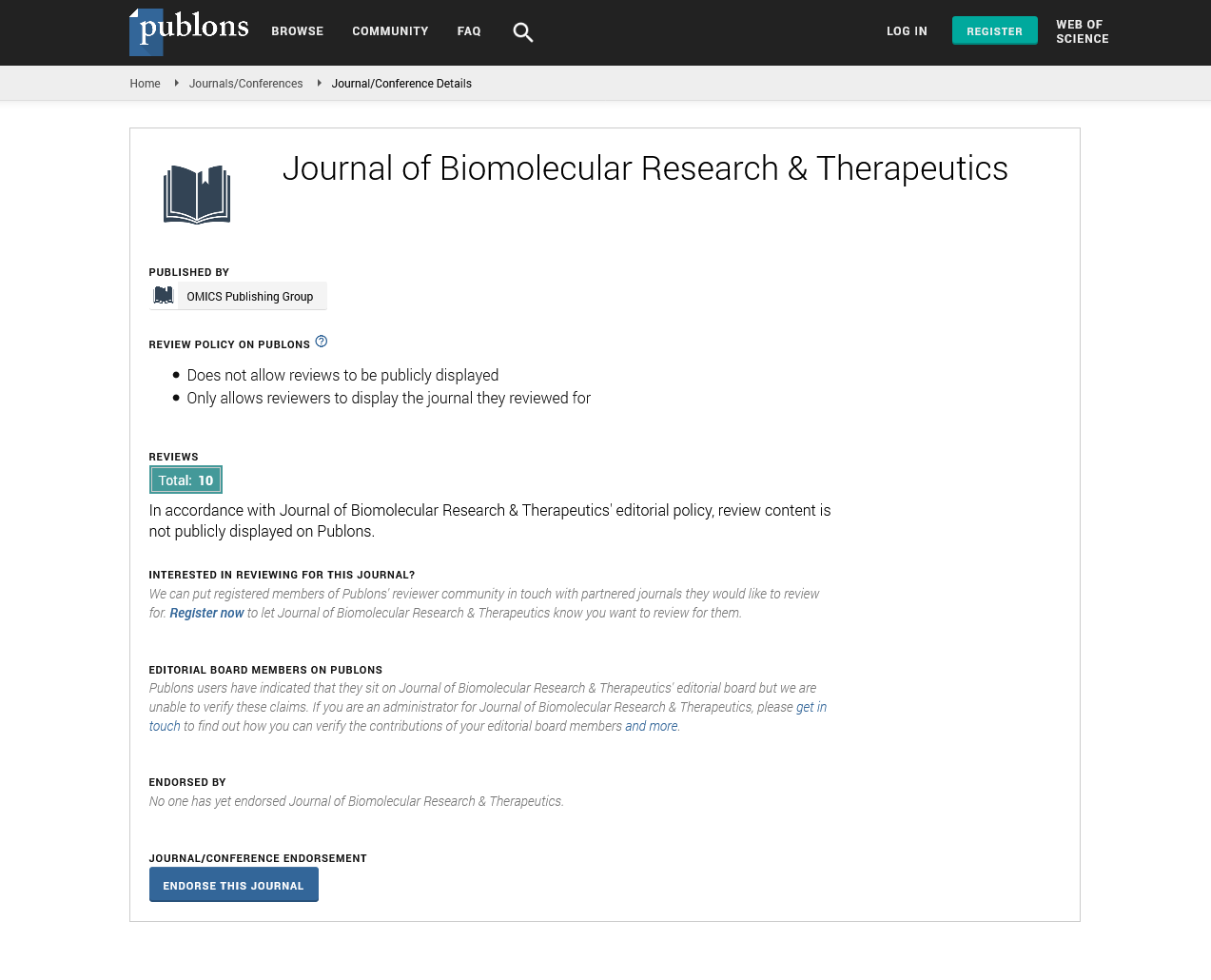Indexed In
- Open J Gate
- Genamics JournalSeek
- ResearchBible
- Electronic Journals Library
- RefSeek
- Hamdard University
- EBSCO A-Z
- OCLC- WorldCat
- SWB online catalog
- Virtual Library of Biology (vifabio)
- Publons
- Euro Pub
- Google Scholar
Useful Links
Share This Page
Journal Flyer

Open Access Journals
- Agri and Aquaculture
- Biochemistry
- Bioinformatics & Systems Biology
- Business & Management
- Chemistry
- Clinical Sciences
- Engineering
- Food & Nutrition
- General Science
- Genetics & Molecular Biology
- Immunology & Microbiology
- Medical Sciences
- Neuroscience & Psychology
- Nursing & Health Care
- Pharmaceutical Sciences
Abstract
MicroRNA Biomarkers for Early Detection of Embryonic Malformations in Pregnancy
Xuezheng Li and Zhiyong Zhao
Congenital birth defects, manifested in newborn infants, are formed during early embryogenesis. Targeted and individualized interventions to prevent birth defects require early detection of risk and signs of developmental abnormalities. Current diagnosis of structural anomalies largely relies on ultrasonography, which can only detect abnormities after their formation in fetuses. Biomolecules, mainly proteins, in maternal blood have been used as indicators of fetal anomalies; however, they lack adequate sensitivity for detecting embryonic malformations. Recently, cell-free microRNAs (miRNAs) have been found in blood and evaluated as biomarkers for diseases. Expression of certain miRNAs in maternal plasma has been shown to be correlated with birth defects in infants. Although their reliability and sensitivity remain to be validated, miRNAs, which can be amplified and sequenced, are potentially sensitive and specific biomarkers for early embryonic dysmorphogenesis.

